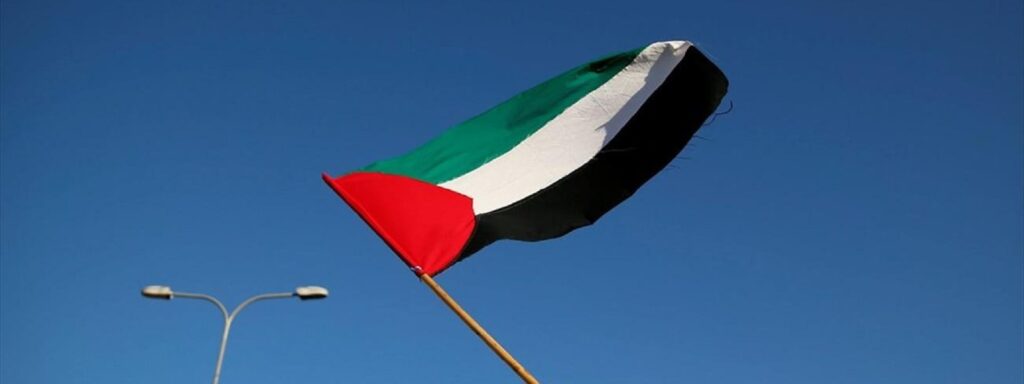“Greece is already one step closer to its declared position on recognizing the State of Palestine,” declared Greek Foreign Minister Giorgos Gerapetritis on Tuesday, following his meeting with Palestinian Foreign Minister Varsen Aghabekian Shahin. The meeting took place the day after the historic Summit in Sharm El-Sheikh.
But what Palestinian state are we talking about today? The Palestinians themselves define their state as comprising the territories of the Gaza Strip, the West Bank, and East Jerusalem, all of which were conquered by Israel during the Six-Day War in 1967. Today, the largest concentration of the Palestinian population was in the Gaza Strip, which has been completely destroyed. In the West Bank, Palestinian presence is now limited to 40% of the territory, while East Jerusalem, which Palestinians consider their capital, is covered by Jewish settlements, cutting the city off from the West Bank.
Sotiris Roussos tells parapolitika.gr: Elements for Palestinian solution are far away
According to Professor of International Relations at the University of Peloponnese, Sotiris Roussos, we are currently very far from establishing a Palestinian state because there is no peace agreement. As he tells parapolitika.gr: “Those elements that compose a solution to the Palestinian issue are distant. They are distant, first, because there is no political consensus in Israel. Not only is there no political consensus, there is no political willingness for talks about establishing a Palestinian state. Even all polls in Israel show that 75% oppose the creation of two states. Second, I don’t think Trump will pressure Israel to engage in real negotiations for establishing two states. He will probably pressure it to withdraw from Gaza. Even Arab states are on the same course as Trump. They don’t want the Gaza massacre to continue because it creates internal problems for them, they want the reconstruction process to proceed smoothly, but they are not the ones who will heavily pressure Israel or the United States toward a Palestinian state.”
Today, the Palestinian Authority, established in 1994 after an agreement between Israel and the PLO (Palestine Liberation Organization), is formally considered the Palestinian government. However, the division within the Palestinian people caused by the conflict between Hamas and Fatah (the main PLO faction) has created two rival governments, with Hamas controlling Gaza and the internationally recognized Palestinian Authority, headed by President Mahmoud Abbas, in the West Bank. It’s noteworthy that the last presidential and parliamentary elections were held in 2006.
The political division among Palestinians appears to have weakened today, and one figure who unites Fatah and Hamas, Marwan Barghouti, remains in Israeli prisons after Benjamin Netanyahu removed him from Monday’s prisoner release list at the last minute, despite Hamas’s request. This demonstrates the Israeli Prime Minister’s strong opposition to creating a Palestinian state, as Marwan Barghouti emerges as the most popular leader among Palestinians to take charge of such an endeavor.
What Palestinian state recognition signifies
With Abbas approaching 90, Hamas decimated, and the West Bank fragmented, it’s clear that Palestine’s reconstruction is one of the stakes for the day after. Professor Sotiris Roussos tells us: “Obviously we’re not talking about a viable ceasefire that will last, I won’t say for two or five months. It might last four to five years, but it’s certain that the incredible trauma of this genocidal attack will lead to new extremist currents among young Palestinians. Don’t forget that settler attacks continue constantly in the West Bank.”
More than 150 countries, seeking to pressure Israel to stop its attacks, have proceeded to recognize a Palestinian state, with the most recent being Britain, Portugal, Spain, Australia, Canada, and France. What they’re essentially doing is recognizing Palestine’s political existence at a diplomatic level, but also with a symbolic element related to the necessity of this state’s existence.
According to Roussos, there is always an optimistic scenario that envisions “rapid reconstruction and rehabilitation of Gaza without major problems. So Gaza could become an example of peaceful Palestinian development, then the international community could pressure Israel for a similar scenario—without destruction, of course—for the West Bank and East Jerusalem. This is an optimistic scenario, but we would need to wait 4-5 years to say it could be implemented.”
Yesterday, however, the Palestinian Foreign Minister who came to our country from Ramallah to meet with the Greek Foreign Minister expressed her optimism that “at the end of the road we see the establishment of an independent Palestinian state.”




